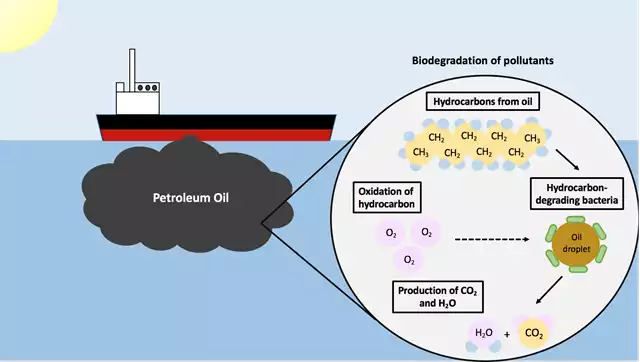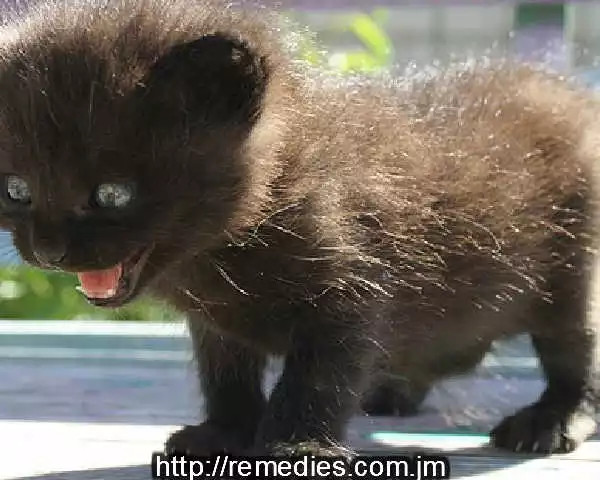Remedy to a Major Oil Spill With Bacteria
How can a thing be protected and sanitary if it has been about for nearly 4.
543 billion years?
That is how long ago Earth was developed and also the waters we are swimming in nowadays have already been around.
Water is often a key aspect to our planet plus the quality of it’s steadily decreasing.
Pollution has gotten worse than it has ever been.
Oil spills, trash, bacteria, all are taking more than the bodies of water and affecting the living organisms causing severe damage to the environment.
Media relations broadcast what they want us to know, not all the things we generally should know is shown.
Imagine a pristine coastline suddenly marred by an insidious blanket of dark, viscous oil—an environmental catastrophe that threatens marine life, local economies, and the very essence of natural beauty.
Traditional cleanup methods often fall short in addressing such large-scale disasters effectively.
However, what if the solution to this monumental problem lay not in cumbersome machinery or toxic chemicals but within the microscopic world of bacteria?
In this article titled Remedy to a Major Oil Spill With Bacteria, we dive into the promising realm of bioremediation—a cutting-edge technique that harnesses nature’s own microbial warriors to detoxify our oceans.
As counterintuitive as it might sound, certain species of bacteria have evolved to devour oil, transforming pollutants into harmless substances through metabolic processes honed over millions of years.
This remarkable natural ability offers a sustainable and efficient alternative for mitigating one of humanity’s most devastating environmental challenges.
Join us as we explore how science is turning these microscopic organisms into powerful allies against oil spills, fostering hope for cleaner seas and healthier ecosystems.
Table of Contents Remedy to a Major Oil Spill With Bacteria
Aromatic Hydrocarbons
Aromatic hydrocarbons are a class of chemicals often found in oil spills that can be particularly harmful to the environment.
When released into the environment, these compounds can have toxic effects on marine life and ecosystems.
However, there is a natural remedy that has been gaining attention in recent years for its ability to break down aromatic hydrocarbons and other components of oil spills: bacteria.
Certain types of bacteria , known as hydrocarbon-degrading bacteria, have the ability to break down and consume these harmful chemicals.
These bacteria work by using the hydrocarbons in oil as a food source, breaking them down into less harmful substances through a process called biodegradation.
Bioremediation
This process of using bacteria to clean up oil spills is known as bioremediation.
Bioremediation has been used successfully in the past to clean up oil spills, such as the Deepwater Horizon spill in 2010.
By introducing these hydrocarbon-degrading bacteria into the affected area, they are able to break down the oil and reduce its harmful effects on the environment.
Bioremediation is a cost-effective and environmentally friendly solution to cleaning up oil spills.
Instead of using harsh chemicals or mechanical methods to clean up the spill, bioremediation harnesses the natural power of bacteria to do the work for us.
One of the benefits of using bacteria for bioremediation is that it can be a targeted and specific approach.
Different types of bacteria are able to break down different components of oil, so scientists can choose the right combination of bacteria to effectively clean up a specific type of oil spill .
Overall, the use of bacteria for bioremediation is a promising solution to the problem of oil spills.
By harnessing the natural abilities of these microorganisms, we can effectively clean up oil spills and protect our environment from further damage.
It is important that we continue to research and develop this technology so that we can better protect our planet for future generations.
Bacteria have proven to be a powerful tool in combating oil spills, but there are still challenges that need to be addressed.
One of the main concerns is ensuring that the bacteria used for bioremediation are able to survive and thrive in the harsh conditions of an oil spill.
Researchers are working on developing strains of bacteria that are more resistant to the toxic effects of oil and can work more efficiently in breaking down the pollutants.
Additionally, monitoring and controlling the spread of these bacteria to prevent any unintended consequences on the environment is crucial.
In conclusion, bioremediation using bacteria is a promising solution to combating oil spills and protecting our environment.
By utilizing the natural abilities of these microorganisms, we can effectively clean up contaminated waterways and reduce the impact of pollution on marine life.
Continued research and development in this area are essential to improve the effectiveness and efficiency of this method.
With the right approach, we can work towards a cleaner and healthier environment for all living organisms.
Let’s work together to make a difference and protect our planet from the harmful effects of pollution.
Environmental Condition
The environmental condition following a major oil spill can be devastating.
Oil spills can have a catastrophic impact on marine ecosystems, causing harm to wildlife, damaging habitats, and disrupting the delicate balance of the ocean environment.
The toxic chemicals in oil can lead to long-term damage to marine life, including fish, birds, and other animals that rely on the ocean for their survival.
In order to remedy a major oil spill, it is important to act quickly and effectively.
Bioremediation using bacteria is a powerful tool that can help clean up oil spills and reduce their harmful effects on the environment.
By introducing hydrocarbon-degrading bacteria into the affected area, we can break down the oil and prevent further damage to marine ecosystems.
It is crucial that we continue to research and develop this technology to improve its effectiveness and efficiency in cleaning up oil spills.
By using bacteria for bioremediation, we can minimize the environmental impact of oil spills and protect our oceans and wildlife from the devastating effects of pollution.
In addition to bioremediation, it is also important to have proper monitoring and response plans in place to effectively address oil spills when they occur.
By being prepared and having the right tools and techniques available, we can act quickly to contain and clean up the oil spill before it causes irreparable harm to the environment.
Overall, using bacteria for bioremediation is a promising solution to remedying major oil spills.
By harnessing the natural abilities of these microorganisms, we can effectively clean up contaminated waterways and protect marine life from the harmful effects of pollution.
Continued research and development in this area are essential to improving our ability to respond to oil spills and protect our environment for future generations.
Let’s work together to ensure a cleaner and healthier planet for all living organisms.
Bacterial Specy
One potential remedy to a major oil spill is the use of bacteria that are specifically designed to break down oil and other hydrocarbons.
These bacteria, known as hydrocarbon-degrading bacteria, have the ability to feed on the oil and convert it into harmless byproducts such as water and carbon dioxide.
One species of bacteria that has been studied for its oil-eating capabilities is Alcanivorax b orkum.
This bacterium is known for its ability to thrive in environments with high levels of hydrocarbons, making it a promising candidate for bioremediation efforts following an oil spill.
Another species of bacteria that has shown promise in oil spill cleanup is Pseudomonas aeruginosa.
This bacterium produces enzymes that can break down complex hydrocarbons found in crude oil, making it an effective tool for bioremediation.
By utilizing these specialized bacteria, we can target and break down the harmful components of oil spills, ultimately reducing their impact on the environment.
Continued research into different bacterial species and their abilities to degrade oil will further enhance our ability to combat oil spills and protect our planet.
Overall, utilizing bacteria such as Alcanivorax b orkum and Pseudomon
News Media Needs to Show the Truth
If the media showed the harsh truth, company will be out on the hunt for them as well as the economy would go down the drain speedily; specifically with us living within a major tourist city!
A massive aspect is when the physique of water closest to us, The Gulf of Mexico, was severely polluted on April 20, 2010.
A enormous oil rig exploded releasing 210 million gallons of oil in to the waters more than the duration of 87 days till they ultimately could cap the well head.
A number of tactics were employed to address fundamental approaches for addressing the spilled oil, which have been: to include oil around the surface, dispersal, and removal.
In summer time 2010, around 47,000 people and 7,000 vessels were involved inside the response functions.
Now six years later, CNN reports “Scientists continue to study environmental impacts, but 5 years after the spill, the long-term adverse effects stay unclear and are, in a lot of circumstances, highly disputed.
BP, the enterprise that brought on the spill, is eager to point out it appears the Gulf of Mexico is healing itself.
” Media reports what they are told to report, just since our Government and neighborhood officials have not told you the truth in regards to the oil spill.
I got the likelihood to speak to a guy, Jeff Lawrence, who is a total conservative and was the only media that was permitted to become imbedded in all the day-to-day operations with the oil spill by the CEO of the oil giant.
He had access to people and details that absolutely everyone else didn’t.
He went completely undercover although functioning alongside the corporation to discover the factual details we all necessary to understand, but wouldn’t get told.
He stated BP did attempt and clean it up but used toxins that in fact did nothing at all but make the matter worse.
It appeared to everybody that the oil was being cleaned up and removed, from what people could see washing up on shore.
What you cannot see is definitely the a huge number of miles of tar that line the floors with the gulf that influence just about every organism in the water.
People are unaware of how unsafe it actually is.
Flesh Eating Bacteria
Health officials in Florida are warning folks heading to Gulf waters to become cautious of a form of flesh-eating bacteria that could be deadly.
Most of us never know a lot about chemical exposure, nor does the media who’re liberals in this case.
They tell absolutely everyone it really is safe to not worry the matter is getting handled.
They create what they interview, they don’t do the study scientists do to understand the true facts.
You see news stories about people today dying or hospitalized as a consequence of bacteria quite regularly, at least what they need to broadcast.
They all have 1 popular point in their lifestyles, they came in get in touch with with the dispersants and also other toxic chemicals though in the waters or on the beaches.
Reality of the Situation
So where do you consider all of that dispersant went when scientists say it really is cleaned up? It’s on the bottom of the gulf with the oil and laced inside the sands on our beaches, waiting to be absorbed by human skin.
The only people that are wanting to convince people that there is absolutely no challenge are these that happen to be trying to protect their enterprises or their house values.
That is why we’re left with this difficulty nowadays, people today believe their home is far more significant than someone’s overall health!
People today have been in meetings with Government, State, University professors and scientists, DEP, EPA, marine biologists, toxicologists along with the list goes on.
When asking them if it was secure to swim in the Gulf of Mexico waters, not among them would say they felt it was protected to swim inside the water around the tar mats, in truth they mentioned they would not!
And these individuals are all getting funded with $500 million by corporations to do their research.
Not too long ago close to household in Navarre Beach, a mutated cobia was caught.
Cobia migrate from South Florida and usually start out showing up about mid-March, when the water temperatures begin reaching the mid-sixties.
The bite improves once April arrives and because the water temperature rises into the seventies.
The cobia had what looked like the bottom of a shoe along the bottom in the fish exactly where the gills are.
Scientists come to think the mutation was from the oil spill toxins when the fish migrate by way of the polluted waters on their journey to the panhandle.
Not just within the south are our animals becoming harmed.
Whales washed ashore the North Sea and had been later reduce open for examination and located numerous bags in their stomachs.
Fishermen and tourists are so speedy to let a piece of littler float out in the ocean and not choose it up.
Coast Line Monitoring
Tens of a huge number of men and women take a look at the beaches every single month, a single piece of trash leads to one more accumulating and take more than the ocean.
It is easy to overlook you’ll find animals living and hunting for meals within the seas and can not simply inform a piece of trash from prey.
Trash develop up in these animals physique can lead to the intestines shutting down due to the fact merely they can’t procedure what they intake and causing death.
Numerous a huge number of sea life are compromised or killed by the pollution we enable to escape into the ocean.
In the event the media was to post exactly how much trash is in our ocean, or how numerous deaths are brought on due to it, tourists will no longer choose to pay a visit to.
In conclusion, utilizing bacteria to remedy major oil spills presents a promising and eco-friendly solution to one of our most pressing environmental challenges.
These microorganisms have shown remarkable efficiency in breaking down hydrocarbons, thereby mitigating the harmful impacts on marine and coastal ecosystems.
Advances in biotechnology continue to enhance the effectiveness and application of these bacterial treatments, offering hope for more resilient responses to future spills.
However, continued research and investment are essential to fully realize their potential and address any unforeseen consequences.
It is imperative that we support further development in this field, ensuring a sustainable approach to managing oil spill disasters for generations to come.







